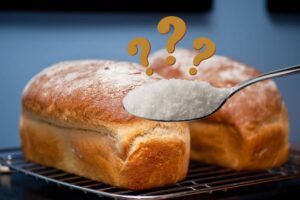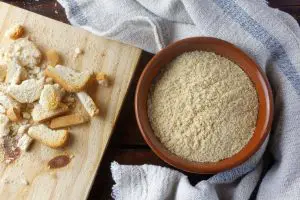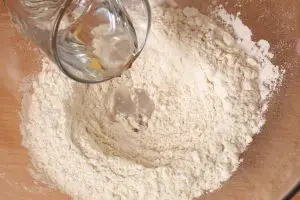There are many different kinds of bread, and it can be rewarding to make it yourself. People expect a few minor imperfections when the loaves are baked, but sometimes there are holes that take away half of a slice. This makes it difficult to eat sandwiches or spreads on the bread. Continue reading to learn the answer to, “Why does bread have holes?”
What Causes the Holes in Bread?
When bread bakes, the yeast that feeds on starches and sugars in the dough release carbon dioxide. This is what causes the bread to rise. If the gases spread unevenly, they cause holes. There are different reasons why this happens, from the ingredients to the process in cooking.
No products found.
Seven Reasons Why Bread Has Holes
1. You Didn’t Knead the Dough Long Enough
When you knead the dough, it creates a gluten mesh. This process traps the gases in the dough. If you don’t knead the dough long enough, the gluten mesh can be weak or may not exist in parts of the dough. This will create large, uneven holes in the bread because the gases are spread out unevenly. You may find that this happens when you bake “No-Knead Bread.” The trick is to make sure that the dough has enough time to form the gluten mesh, even if you aren’t kneading it.
2. You Used Too Much Flour
If you use too much flour, it can stop the dough from sealing to itself. When this occurs, you may have large air pockets trapped in the loaf. This can actually happen if you use oil to finish the loaf; the oil can also trap air and prevent the dough from sealing. Make sure that you finish your dough somewhat aggressively. You can bang it on the table to make sure that you get all of the large air bubbles out before you bake it.
3. Under-Proofing
When you finish mixing and kneading your dough, you need to let it sit and proof and ferment. During this process, the gluten mesh relaxes and becomes more flexible, while the yeast expands the gases in the dough. If you don’t let it sit long enough, the yeast will still be too active. It will have more energy, and it will release gases too quickly and forcefully. This will cause gas pockets in the bread, which become holes.
4. Your Oven Isn’t Hot Enough
When you bake bread, the most important stage is the first 10 minutes. During this time, your bread rises. The temperature needs to be high because the heat will activate the yeast and get it going. If your oven isn’t hot enough, the bread won’t be heated evenly. In addition, some of the yeast will activate more, and the gases will be uneven throughout the dough.
This is actually a common problem because when you open the oven to put the bread in, the cold air outside of the oven causes a sudden temperature drop in the oven. You can prevent this from happening by preheating your oven around 20 degrees hotter than the temperature you need for the bread.
5. Your Dough Is Overly Hydrated
If your bread is overly hydrated, you will end up with large holes in your bread. You can actually control this by maintaining a hydration level of 60%. You should have 100 grams of flour and 60 grams of water. You can multiply this out to the amount you need to make your recipe.
One reason that people end up overhydrating is because they use measuring cups instead of a scale. The problem is that measuring cups are not accurate, and dough requires a greater deal of precision. Baking bread is chemistry, and you need to be exact to make sure that you have the right balance in your dough.
6. You Used Too Much Yeast
Sometimes, people want to shorten the amount of time it takes to bake bread. They think that if they increase the yeast or leavening agents, it will shorten the time it takes the bread to proof. However, this isn’t the case. What happens is that the additional yeast creates too much gas in the dough, and it will cause an uneven crumb. You should decrease the yeast and then let the dough proof the correct amount of time.
The reality is that baking bread is a process, and trying to speed up the recipe will usually cause other issues. In this case, it will make big holes in the bread. It is better to take the time necessary and have your bread turn out correctly.
7. The Temperature of the Dough Is Too High
If the temperature of your dough is too high, it will also create holes in the bread. This can happen if you use water that is too warm, if the room temperature is too warm, or if you mix too long at high speeds. You actually need to make sure to use cool water when you are baking bread, and when it is hot outside, it should be even cooler.
The problem with hot dough is that the yeast and leavening agents will release the gases too early and too quickly during the proofing and fermentation stages. This will cause large holes in your bread.
Final Words
When you are making bread, it is important to remember that there is a reason for each part of the process. Be sure to follow the directions, and if you are getting large holes in your bread, modify your baking practices.






